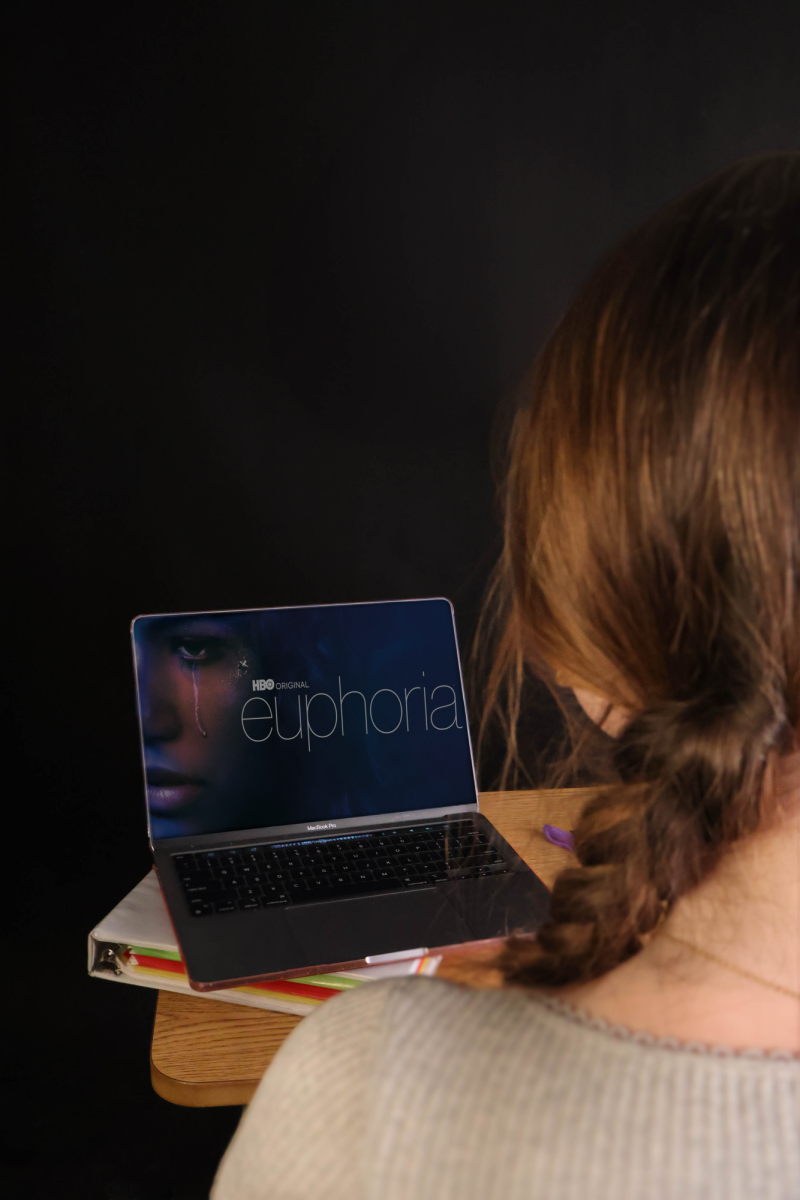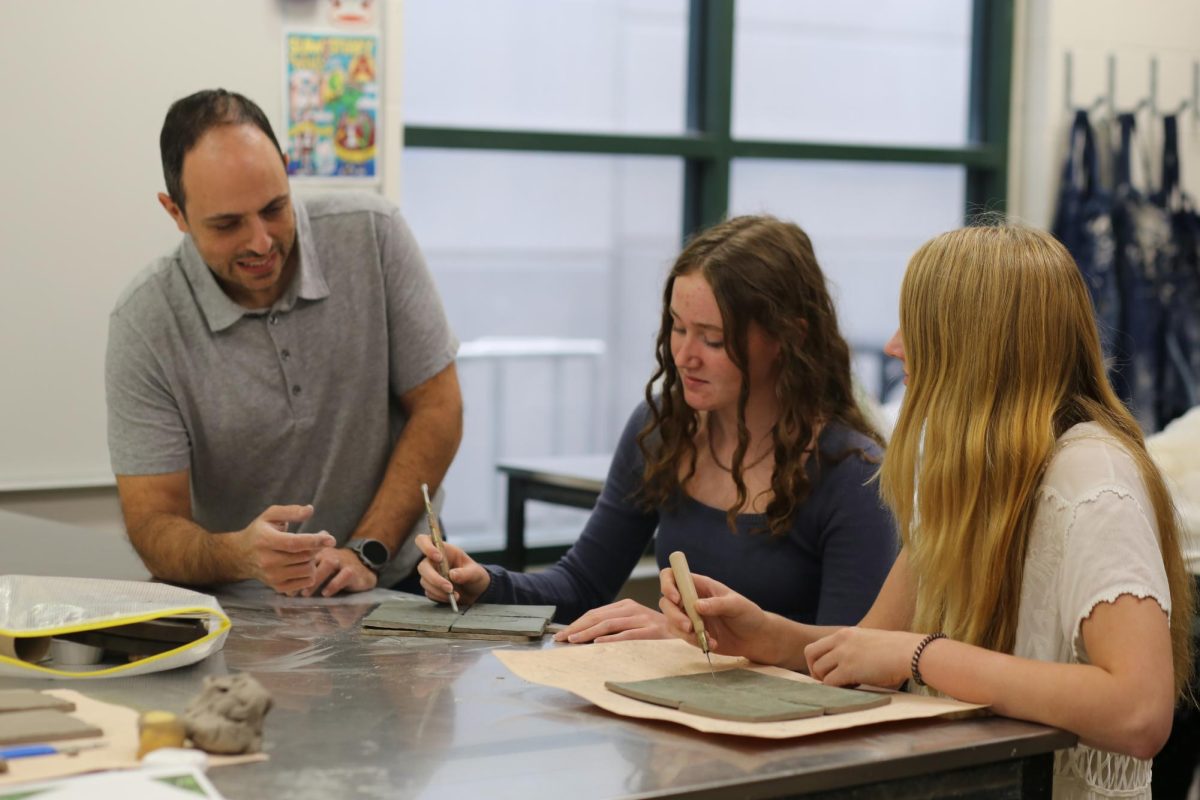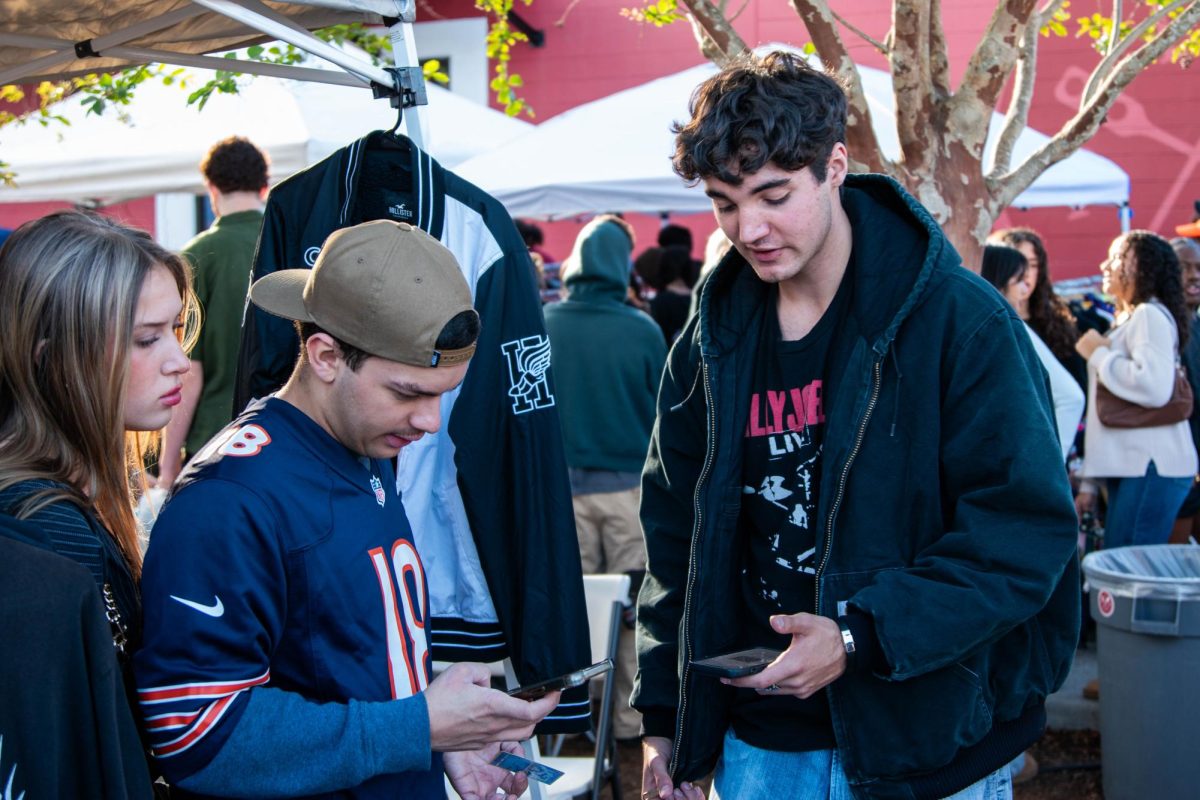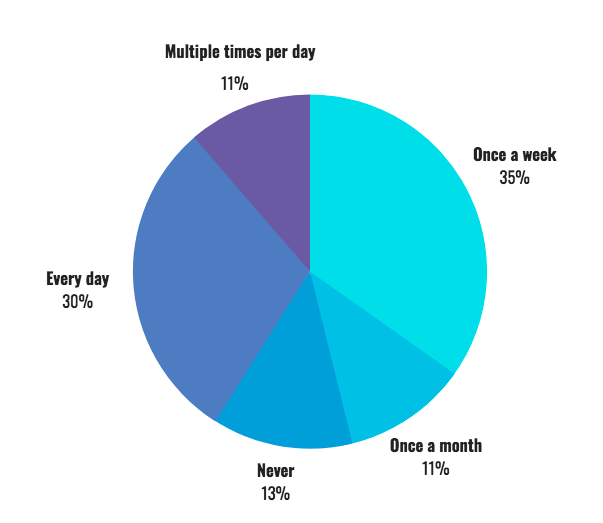Like millions of teens across the country, Junior Nora Wright starts every morning off by waking up and reaching for her phone.
“I use my phone every day,” Wright said. “I use it to check social media, check Canvas and watch YouTube… but I don’t really know current events.”
Students have millions of resources at their fingertips. Through phones, computers and tablets, there is an almost endless stream of accessible information such as social media, games, video streaming services and news.
Mainstream media is dying. For many years, reading a magazine or newspaper was one of the few available sources of news, along with the radio and television. Although news has adapted and progressed in the digital age, there’s a problem: many students have completely stopped going out of their way to check it. Instead, students’ minds gravitate to more flashy or relaxing platforms, like online gaming programs and social media accounts.
According to a Trinity Voice survey on August 24, 94.7 percent of the 290 Trinity students who participated believe that keeping up with current events is important, but only 27 percent read the news every day.
A decrease in news reading may be due to the fact that so much of the information found online is classified as untrue. Fake news pops up on almost every social media platform, especially on Facebook. In some cases, the ratio of fake news to actual facts is so high that sifting through websites can be tedious and takes up time that students would rather allocate elsewhere.
“I think [fake news] frustrates people,” History Department Chair Samuel Stewart said. “It gets them to the point where they throw up their hands and go ‘I’m not even going to try and keep track of what’s fake anymore.’”
News outlets are trying more than ever to reach a younger demographic, due to their need for a larger reach, which keeps these companies in business, and to sift out the news that is fake.
Due to social media, traditional news companies have lower numbers of readers than ever. 45 percent of Trinity students receive their news from social media, while only 1.9 percent receive it from an in-print source.
Though the success of paper news has been decreasing for a while, televised programs’ ratings have also been steadily dropping in the past few years.
CNN has combated this issue by creating their own page on Snapchat’s “Discover” feature, which may explain why 41 percent of students reported it as one of their news sources. The New York Times, along with almost every other newspaper, has begun posting articles exclusively online. Televised news is migrating to YouTube, which 35 percent of students use for their news, where networks post clips and short news segments to hold viewers’ attention.
Although 94.7 percent of Trinity students believe that keeping up with current events is important, only 27 percent read the news every day. Some argue that this is due to a lack of time, because they are already flooded with work. Others find it boring or too difficult with all of the fake news in circulation.
Whatever the reason, reading the news may not be at the top of people’s priority lists when multiple devices filled with games and apps are sitting right in front of them. However, these devices also make receiving reliable news easy and quick. It only takes a few minutes to follow a few news sites on Instagram, Twitter, or Snapchat, opening up endless amounts of world news for students to use every day.
The social media apocalypse
Do Trinity students really read the news?
Categories:
0
Navigate Left
-
 FOCUSCliques That Don't Click
FOCUSCliques That Don't Click -
 FOCUSPop Quizes & Plot Twists
FOCUSPop Quizes & Plot Twists -
 FOCUSMalkin's Masterpiece
FOCUSMalkin's Masterpiece -
 FOCUSCabal Crushes Career
FOCUSCabal Crushes Career -
 FOCUSMia's Memorable Movies
FOCUSMia's Memorable Movies -
 FOCUSTaylor's TikTok Trends
FOCUSTaylor's TikTok Trends -
 FOCUS2O24 Pop Culture Highlights
FOCUS2O24 Pop Culture Highlights -
 FOCUSAlbums Defining 2024
FOCUSAlbums Defining 2024 -
 FOCUSFascinated by Fandoms
FOCUSFascinated by Fandoms -
 FOCUSNew Trends, New Spends
FOCUSNew Trends, New Spends -
UncategorizedCommentaaron
-
 UncategorizedNothing To Laugh At
UncategorizedNothing To Laugh At -
UncategorizedCommentaaron
-
 UncategorizedSkinks Soar to Third at State Envirothon
UncategorizedSkinks Soar to Third at State Envirothon -
 UncategorizedLuau Night
UncategorizedLuau Night -
 UncategorizedSenior Dog Day
UncategorizedSenior Dog Day -
 UncategorizedBeyond Hustle Culture
UncategorizedBeyond Hustle Culture -
 Uncategorized"Shots" Unraveled
Uncategorized"Shots" Unraveled -
 UncategorizedA Virtual Crisis
UncategorizedA Virtual Crisis -
 UncategorizedParty Drink to Cancer Link
UncategorizedParty Drink to Cancer Link
Navigate Right
About the Contributor

HARPER WILCOX, Staff Writer
Harper Wilcox is a junior entering her third year on staff. She currently writes for the Focus department, but has also written for Opinions and Lifestyles in the past. She enjoys reading, doing makeup and looking at pictures of colored hair, which she used to have until her dreams of having a rainbow hued head were shattered by Trinity’s oppressive dress code. She can be contacted at [email protected].




